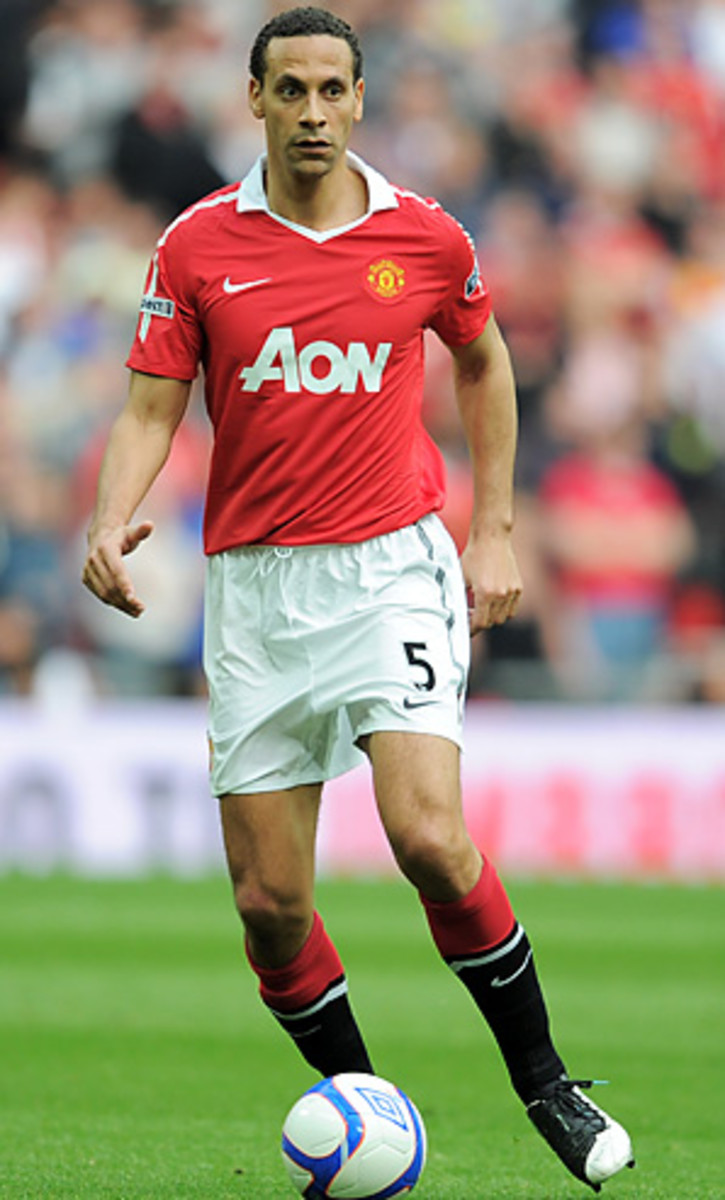United's back line places emphasis on concentration against Barcelona
MANCHESTER, England -- Paddy Crerand grew up near Alex Ferguson in one of Glasgow's poorest working-class districts. The former Celtic and Manchester United midfielder even remembers playing against the United manager in his youth. "He was a dirty so-and-so," Crerand, 72, laughs over a tea with SI.com in Old Trafford's Red Zone. "Looking after yourself," as the 1968 European Cup winner calls it, was a key component of British football in the 20th century. "Where we come from, you never show your opponent that you're hurting."
It comes as no surprise that a traditionalist like Crerand should take a shining to Nemanja Vidic, who manages to blend intelligence with healthy aggression. "He looks like he can hurt you," Crerand says of the United captain. "I would have been frightened as his opponent."
If it hadn't been for so many United players excelling this season, the imperious Serb would have had a good chance to win the vote for Player of the Year. Vidic, 29, has been outstanding at the back for the champions. But there's one problem: Barcelona won't be scared of him or any other United player after beating Alex Ferguson's men in the 2009 final in Rome. What's more, Vidic might look like he can hurt opponents, but doing so without the consequent sanctions from the referee is nigh impossible in Europe where referees are far less lenient.
Kicking Messi and Co. off the pitch won't be an option, even tackling fairly might not be. Because of their tendency to to play without a fixed center forward, the Catalans will be able to escape the attentions of the Vidic and Rio Ferdinand for large sections of the game -- in pure geographical terms. The United center backs can't man-mark the Barca strikers for fear of breaking up their back line and must therefore be content to let them drift off into midfield, where their colleagues will hopefully do a better job than in the Stadio Olimpico two years ago.
It wasn't just a reluctance to talk specific tactics that had Ferguson reiterate the importance of "keeping concentration" at the pre-final news conference in Carrington on Tuesday. Both goals from Barcelona, Samuel Eto'o's low drive from an acute angle and Messi's improbable header, stemmed directly from United's lapse of concentration.
Keeping your wits about is especially hard against Pep Guardiola's team, who like to subject their opponents to long passages of seemingly aimless passing before playing a killer ball. When Barcelona annihilated Stuttgart 4-0 in 2010 and beat Bayern by the same margin a year before, German pundits and papers criticized the Bundesliga teams for playing "kindergarten football," without putting up any resistance. The real issue, as Mark van Bommel explained, however, was not an unwillingness to challenge but an inability. "We wanted to tackle but couldn't get there," said the Dutchman. Barcelona kept the ball so well that the chances of successful interventions were indeed minimal. The German sides ended up chasing shadows, just as United did after going a goal down in Rome.
So dow do you defend against an enemy who doesn't show his face? It's the key question for Vidic and Ferdinand, two big, strong men more used to deal with the constant hustle and bustle of the Premier League. "We will have to adapt because things are different to what we traditionally come up against," Ferdinand told SI.com. "There will times when (Vidic) and me will be standing next to each other with no one around us, but that's just as dangerous. We have to make sure we stay switched on at all times."
Since the individual battles of man-marking gave way to zonal, collective defending, the art of stopping your opponents has become ever more demanding on the mind. "Three quarters of the game are played in your head," Stoke defender Robert Huth told SI.com. A good center back needs to anticipate the movement of the striker while keeping his own positional discipline. These dual qualities have become so hard to achieve at the highest, fastest level that Franz Beckenbauer has referred to central defenders as the new strikers. "Everybody used to spend big money on forwards but now good defenders are really rare and very expensive," the former West Germany and Bayern Munich sweeper told SKY Germany. According to sources, Vidic was ironically offered to Bayern last summer but negotiations never started due to Louis van Gaal's erroneous insistence that the 2010 champions were "good enough already" at the back.
Against Barcelona's slow-slow-slow-quick approach, defending can become akin to goalkeeping: a test of mental rather than physical endurance. If it's true that keepers prefer to get many shots on goals and to be involved in the box during games as a means to keep sharp, maybe the best hope for Vidic and his teammates is Barcelona playing a more direct attacking games, with faster and more frequent passes into the final third. Knowing Guardiola's team, they will only revert to that style when needs must. This realization lies at the heart of Edwin van der Sar's insistence that United has to score first this time, to stop Barca from anesthetizing its opponents with their possession play. It might sound counterintuitive but the more actual defending in close / proximity they'll have to deal with, the happier Vidic and Ferdinand will feel.






